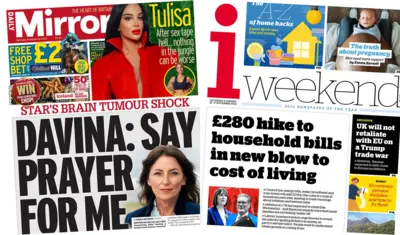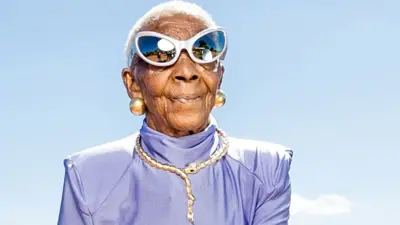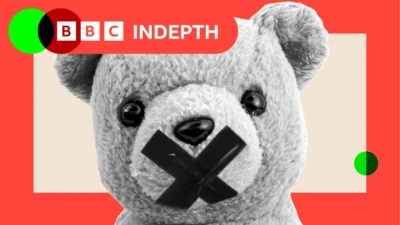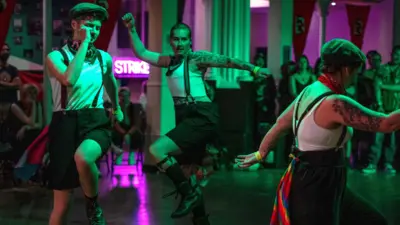We've updated our Privacy and Cookies Policy
We've made some important changes to our Privacy and Cookies Policy and we want you to know what this means for you and your data.
Rolling Stones drop Brown Sugar from US tour set list
Image source, Getty Images
The Rolling Stones have dropped Brown Sugar, one of their biggest hits, from their US tour.
It follows unease with the depictions of black women and references to slavery in the song, which reached number one in the US in 1971.
The band's veteran guitarist Keith Richards but said he was confused by people who wanted to "bury" the track.
"Didn't they understand this was a song about the horrors of slavery?" he said.
The 77-year-old musician concluded that he's "hoping that we'll be able to resurrect the babe in her glory somewhere along the track".
Singer and co-writer Sir Mick Jagger, meanwhile, told the paper the reason for not playing the song was that it was "tough" to compile a set list for stadium shows.
"We've played Brown Sugar every night since 1970, so sometimes you think, we'll take that one out for now and see how it goes," he said. "We might put it back in."
Over the years, Brown Sugar has been the band's second most-played song live after Jumpin' Jack Flash, .
The rock band last performed it in Miami, Florida, in 2019 - the final date of that leg of their North American tour, which resumed last month.
Controversial history
The catchy opening riff and melody propelled the song to mainstream success and often overshadowed the song's problematic references to slavery, sex, sadomasochism and heroin.
Discussing the song in a 1995 interview with Rolling Stone magazine, Jagger said: "I never would write that song now.
"I would probably censor myself. I'd think, 'Oh God, I can't. I've got to stop'. God knows what I'm on about on that song. It's such a mishmash. All the nasty subjects in one go."
But criticism of its lyrics, rumoured to be inspired by one of the singer's girlfriends, has intensified in recent times.
Last year producer Ian Brennan criticised the band's decision to continue to "play and profit" from the song, which he said glorifies slavery, rape, torture and paedophilia.
"The call is not for censorship or 'record burning,' but greater consciousness and sensitivity," Brennan .
"This particular case is far from nitpicking or searching into the furthest corners of someone's history for any misstep. Brown Sugar is not some obscure B-side."
The song reached number two in the UK charts when it was released, and has been streamed almost 170 million times on Spotify.
Follow us on , or on Twitter . If you have a story suggestion email entertainment.news@bbc.co.uk.
Top Stories
More to explore
Most read
Content is not available








